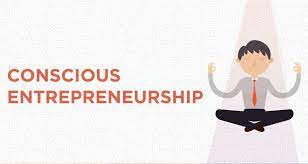Conscious leadership can be a valuable asset in helping organizations navigate complex challenges by providing a holistic and mindful approach to decision-making and problem-solving. Here's how it can contribute to addressing and overcoming such challenges:
Systems Thinking: Conscious leaders often employ systems thinking, which means they view the organization as a complex system with interconnected parts. This perspective helps them understand how changes in one area can impact other parts of the organization, and how external factors can affect the internal workings. This awareness is crucial for addressing complex challenges that often involve multiple variables and interdependencies.
Emotional Intelligence: Conscious leaders tend to have high emotional intelligence, which allows them to understand and manage their emotions and those of their team members effectively. In complex situations, where emotions can run high, emotional intelligence helps leaders maintain calm, make rational decisions, and facilitate constructive communication and conflict resolution.
Stakeholder Engagement: Conscious leaders consider the needs and perspectives of all stakeholders, not just shareholders or top management. When facing complex challenges, they engage with various stakeholders, including employees, customers, suppliers, and the community, to gather diverse insights and build solutions that take multiple perspectives into account.
Ethical Decision-Making: Complex challenges often come with ethical dilemmas. Conscious leaders, guided by strong ethical principles, make decisions that align with their values and the values of the organization. This builds trust and credibility, even in the face of difficult choices.
Long-Term Focus: Conscious leaders take a long-term view of their organizations. When addressing complex challenges, they consider the long-term implications of their decisions and actions, rather than seeking quick fixes. This can result in more sustainable solutions that address the root causes of the challenges.
Inclusivity and Diversity: They promote an inclusive and diverse work environment. When dealing with complex challenges, a diverse workforce can bring a wide range of perspectives and problem-solving approaches, which is invaluable in finding innovative solutions.
Learning and Adaptation: Conscious leaders encourage a culture of continuous learning and adaptation. In complex situations, they are more likely to view challenges as opportunities for growth and development. They foster a culture where employees are not afraid to experiment, learn from failures, and adapt strategies as needed.
Collaboration and Teamwork: Complex challenges often require collaborative efforts from different parts of the organization. Conscious leaders foster a sense of teamwork and collaboration, breaking down silos and encouraging cross-functional cooperation to tackle multifaceted issues effectively.
Resilience and Well-Being: Conscious leaders prioritize the well-being of their team members. This focus on employee health and happiness can help build resilience in the face of adversity and complex challenges. Employees who feel supported and valued are more likely to stay motivated and overcome obstacles.
Adaptive Leadership: Conscious leaders embrace adaptive leadership, adjusting their leadership style to match the evolving needs of the organization during times of complexity and change. They are flexible and open to trying new approaches when traditional methods prove inadequate.
By incorporating these principles and practices, conscious leadership can guide organizations through complex challenges with greater clarity, empathy, and adaptability. It enables leaders to make informed, ethical decisions and foster an environment where teams are empowered to collaboratively develop innovative solutions to intricate problems.
If you want to help your leadership team embrace Conscious Leadership, now you know who to reach out to for help :-) Look forward to hearing your views on this and if you agree with it and like it, feel free to let me know and share it with others too!!



